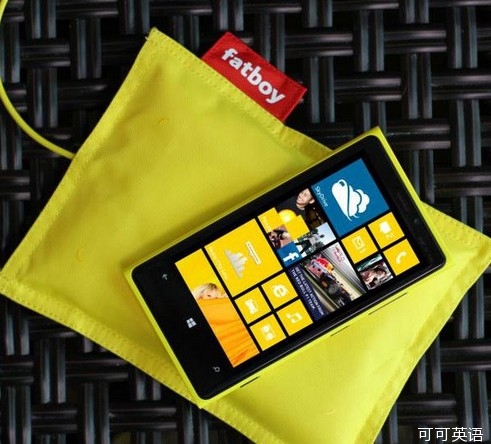(单词翻译:单击)

Backed by the financier J.P. Morgan, Nikola Tesla, the inventor and rival to Thomas Edison, built in the early 1900s the Wardenclyffe Tower, a 187-foot-high structure on Long Island, which he said could transmit electricity wirelessly. The project failed, and Tesla ended up broke. (In an earlier experiment in Colorado, Tesla had wirelessly lit up 200 lamps over a distance of 25 miles, but pedestrians witnessed sparks jumping between their feet and the ground, and electricity flowed from faucets when turned on. Oops.)
尼古拉•特斯拉是19世纪末20世纪初与托马斯•爱迪生相媲美的发明家。1901年,他从亿万富翁J.P.摩根那里获得资助,在纽约长岛修建了一座高达187英尺的无线电能传输塔——沃登克里弗塔。可惜项目最终失败,特斯拉本人也宣告破产。(特斯拉之前曾在科罗拉多州做过类似的实验,成功地将25英里之外的200盏灯点亮。不过据现场目击者称,他们能感到电流从地面穿过脚底,甚至当地居民在打开水龙头时,都能看到水流在哗哗放电……)
Fast-forward over a century, and wireless electricity is finally gaining some traction. More than one hundred companies including startups such as WiTricity and ProxybyPower and giants such as Toyota (TM), Intel (INTC), Samsung, and Foxconn are investing in the technology. The challenge: to take the wires out of the power equation by transmitting electricity through magnetic fields.
一个多世纪过去了,无线电能传输技术已取得了一些进展。一百多家公司正在研究这项技术,其中既有WiTricity和ProxybyPower等新创公司,又有丰田(Toyota)、英特尔(Intel)、三星(Samsung)和富士康(Foxconn)等跨国企业。目前的挑战在于:按照功率方程原理,让电能从通过电缆传输变成通过磁场传输。
When in the atmosphere, electricity exists as a magnetic field. The trick is to capture it safely to recharge devices. Today's electric toothbrushes charge wirelessly -- as power is transmitted through a magnetic field from the charger to the brush. You can already buy wireless recharging pads: Place your cellphone on a pad that's plugged into the wall, and it will recharge. These pads, however, have their limitations -- the cellphone has to be in the right position, and it can take a long time. A New Zealand company called PowerbyProxy has demonstrated a system where you can put multiple cellphones on a pad in any position, and it will charge the devices as fast as a traditional charger. Samsung last month invested $4 million in the company.
电能在空气中传播时会转变为电磁场。所以我们可以非常安全地给手机等设备无线充电。现在普遍使用的无线充电式电动牙刷就是这个原理——电能通过磁场从电源传输给牙刷。市面上还有不少无线充电板,只要接通电源,再把手机放到上面就能无线充电。不过这种充电板有不少缺点:手机必须放得恰到好处,而且充电时间也很长。新西兰一家叫PowerbyProxy的公司发明了一套新系统,用户可以同时把多部手机摆放在充电板上的任何位置,充电速度很快,时间与传统方式相当。三星公司上个月宣布向PowerbyProxy投资400万美元。
The next step: charging without being so tied to a pad. That's the technology a Watertown, Mass., company named WiTricity is developing. Based on work done at MIT, the technology -- on which the company holds exclusive patents -- uses magnetic resonance to move power through the air -- which means electricity can be moved farther distances without a wire. The way it works: Two devices resonate at the same frequency so that the magnetic waves can travel very precisely from one point to another. Plug a resonator into a wall outlet, and a device installed on a cellphone or an electric car receives the power and starts recharging. WiTricity says its system can move an impressive 3,300 watts -- enough to charge an electric car -- with little efficiency loss. Says Eric Giler, the CEO of WiTricity: "We all love electricity and are willing to do almost anything to get it. It will be the last thing to go wireless, but it will go wireless."
下一个目标:无需充电板也能无线充电。位于马萨诸塞沃特敦的WiTricity公司在这个领域颇有作为。这家公司利用电磁谐振技术在空气中传输电能,意味着电能有望实现远距离无线传输。这项技术的基础是麻省理工学院(MIT)的研究成果,WiTricity持有独家专利。它的具体原理如下:如果两个谐振物体具有相同的频率,那么电能将非常精确地从一方传输到另一方。只要把谐振器插入插座,在另一边的电动汽车或手机里安装上对应的设备,它们就能接收到电能,开始充电。WiTricity称目前已能传输高达3300瓦特电能而损耗极小,这已经足够给一辆电动汽车充电了。WiTricity首席执行官埃里克•吉尔说:“我们都热爱电能,愿意不惜一切代价获得它。电能也许是我们最后一个希望无线化的东西,而这个目标必将实现。”
Is the process safe? Because electricity moves through the air as magnetic waves that are similar to the earth's magnetic waves, it poses no harm to humans, says Giler. The FCC has set limits for magnetic fields, and WiTricity claims its devices fall well below that threshold. The industry, however, will still face a tough time educating and persuading consumers that these devices are safe.
这个过程是否安全?吉尔称因为电能以电磁波的形式通过空气传输,这和地球的电磁场类似,所以对人类不会造成危害。美国联邦通讯委员会(FCC)对电磁场技术有不少规定,WiTricity自称它的设备都符合FCC的要求。不过,整个工业界仍面临巨大的挑战,需要在教育和宣传上不断努力,以打消广大消费者的顾虑。
In recent weeks, Intel and Hon Hai/Foxconn, seeing wireless charging as a possible killer app for electronic devices such as laptops and cellphones, invested in WiTricity. Schlumberger, which is interested in cutting the number of wires in its oil rigs to save maintenance costs, was an early investor, as was Toyota, which is reported to have plans to test a wireless charging station for plug-in cars.
英特尔和鸿海/富士康集团将无线充电技术视为笔记本和手机等电子设备的杀手级应用。它们在几周前投资了WiTricity公司。石油巨头斯伦贝谢(Schlumberger)是WiTricity的早期投资者,它希望新技术能减少自己油田里的电线数量,以节约维护成本。丰田公司也参与了投资,有消息称它计划测试一种用于插电式电动车的无线充电站。
The technology has applications outside the consumer sphere as well. WiTricity is working with the Pentagon to wirelessly charge those robots that disarm bombs. When soldiers try to plug in the robots for recharging, they sometimes get shot by snipers. Doing it wirelessly would reduce the danger. In the medical world, patients with heart pumps have to have electric wires running out of their bodies, which can cause infections. WiTricity is working with heart pump maker Thoratec to create a wireless solution.
无线充电技术不仅在民用领域崭露头角,在其他领域也大放异彩。WiTricity正在和五角大楼合作,研究如何对美国军方的拆弹机器人无线充电。目前这些机器人需要人工更换电池,不少士兵在操作时会被敌方的狙击手枪击。无线充电将极大地避免伤亡。在医疗领域,病人们所使用的心脏辅助泵需要外接电源,很容易引起感染。WiTricity正在与心脏辅助泵制造商Thoratec合作开发无线充电装置。
How long before this technology becomes a reality? All these applications are in the testing stage, but Giler says that within the next couple of years many of them will be hitting the market.
这项新技术何时才能变为现实?目前所有领域都还在实验阶段,不过吉尔表示,我们有望在未来几年陆续看到相关的新产品面世。
Until then, where did I put that cellphone charger again.
到那时,我的手机充电器该何去何从呢?


